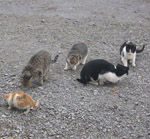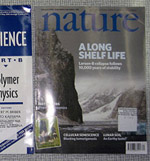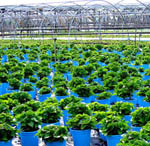Unexpected relationship between warming and advancing treelines
A new study reveals that treelines are not responding to climate warming as expected. The research, published in Ecology Letters, tests the premise that treelines are globally advancing in response to to climate warming since 1900. According to the journal, this study is the first global quantitative assessment of the relationship between climate warming and treeline advance.
The study found that while treeline is advancing in some cases, in other cases it's holding steady. The researchers conducted a multivariate meta-analysis, using a global dataset of 166 treeline sites with temperature data taken from the closest climate station to each site. The team used this data to analyse treeline advance throughout the 20th century and consider the contributing factors to that advance.
The team found that only 87 of the 166 sites (52%) had advanced while simultaneously the mean annual local temperatures had increased at 111 of the 166 sites at an average rate of 0.013˚C a year (or 1˚C in 77 years). Of the remaining sites, 77 (47%) remained stable and only two (1%) had treelines that receded. Both of the receding sites showed evidence of disturbance, indicating that regardless of form, location or degree of temperature change experienced over the last century, treeline positions have either advanced or remained static.
Another surprising result was that treeline advance was more likely associated with a rise in winter temperatures versus summer. Treelines are the elevation or latitudinal limits where trees are capable of growth or survival and are considered to be early indicators of climate warming because they are constrained primarily by cold temperatures. Summer temperature is widely considered to be the primary control of treeline formation and maintenance, whereas winter temperatures have previously been considered less critical because of the insulative effects of snow. This study reveals how winter warming has overturned this prevailing view.
According to study co-author Melanie Harsch:
"Surprisingly these results reveal that treelines are not universally responding to climate warming by advancing, as expected. However they demonstrate the importance of temperature on treeline advance over other factors such as disturbance, latitude, scale, elevation and distance to the ocean; none of which demonstrated strong relationships with the probability of treeline advance... Several studies on plant species' responses to climate warming have shown mixed results and this study provides a possible explanation – both winter and summer conditions control treeline position. Our expectations of response depend upon which factors are limiting the current treeline distribution. Where summer temperature is the primary limiting factor we can expect to continue seeing advance, but at other sites treeline advance is unlikely to occur until other limiting factors are first lessened."




 Climate
Climate
Reader Comments